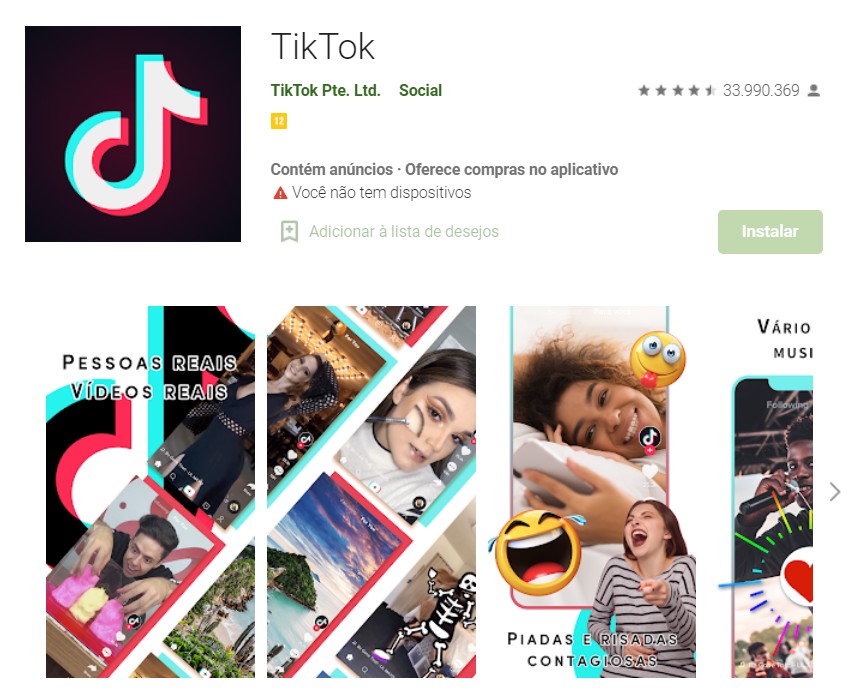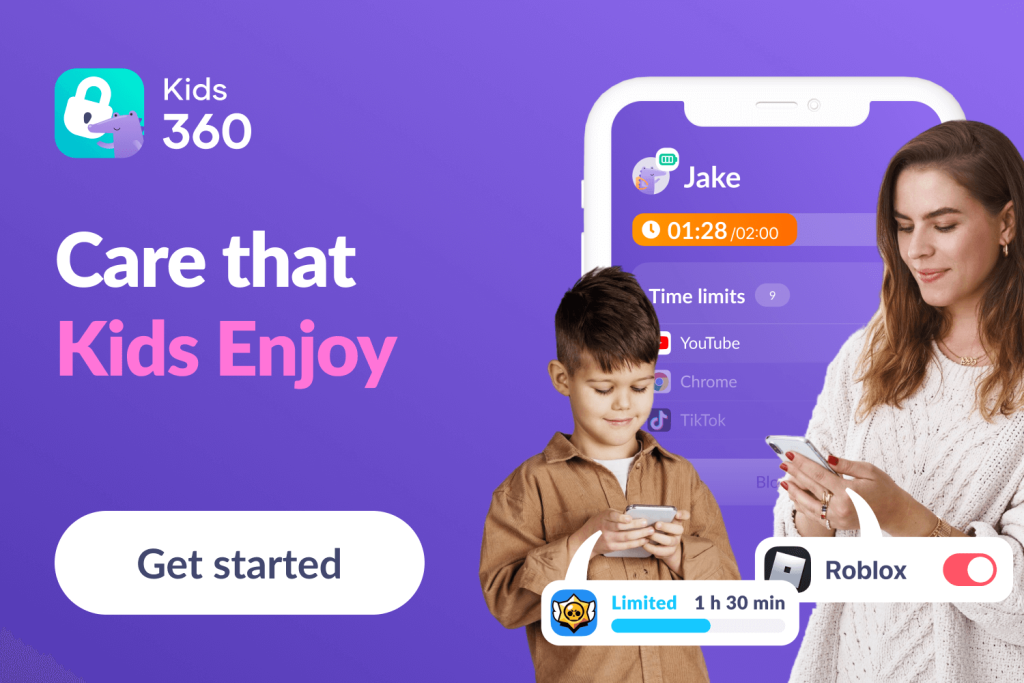Top 10 Adult Social Media Platforms Parents Should Know

It’s no secret that adult social media has become a huge part of our lives. In fact, it’s estimated that 3.2 billion people worldwide use some form of social media—that’s around 42% of the global population!
Social media has always been lauded for its ability to connect people all around the world, and it can certainly be an incredible tool for networking, learning information, and entertainment.
However, there are a variety of risks associated with these adult social networking sites, and with children, in particular, using it; such as cyberbullying, privacy issues, and excessive screen time just to name a few.
With so much time spent online, it’s important for parents to stay informed about the sites and apps their kids are using. Here are 10 social media sites and apps you should be aware of.
Contents:
- How Does the Use of Adult Social Media Affect Kids?
- 5 Adult Social Media Sites Parents Should Pay Attention
- 5 Adult Social Media Apps Parents Should Be Aware Of
- How Does Adult Social Media Affect Kids? Ways to Keep Your Child Safe
- FAQs
How Does the Use of Adult Social Media Affect Kids?
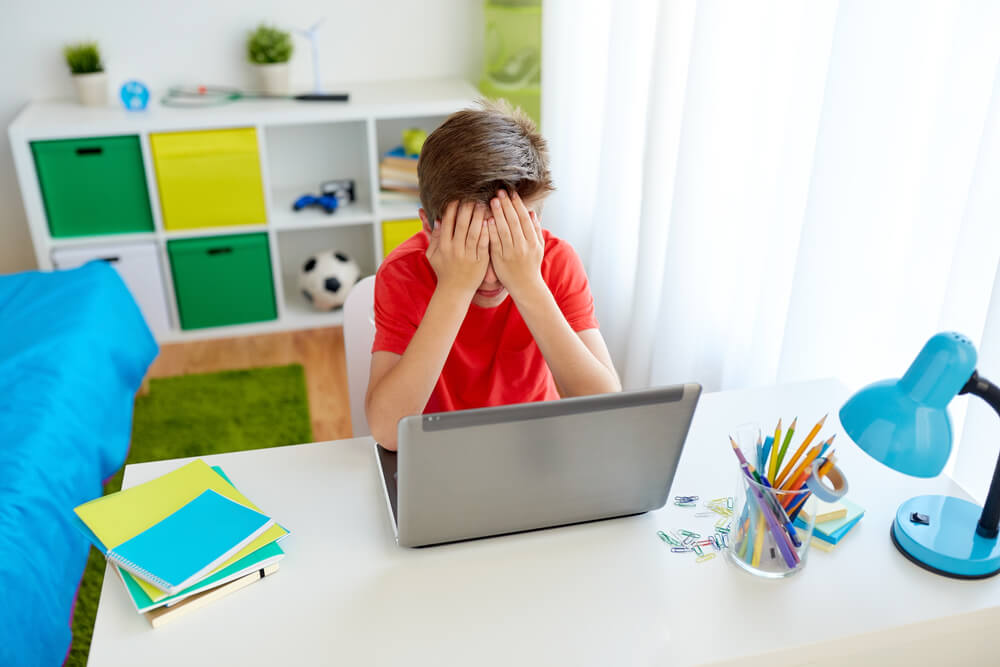
Ground Picture/Shuttertock
With the ever-growing prevalence of social media and adult social networking sites, adults aren’t the only ones taking part. Whether it’s a newborn having their own hashtag on Instagram or a preschooler being dropped off for their first day of online schooling, kids are consuming and engaging with more media than ever before.
Sadly, this also means that they are at greater risk from its potential ill effects, such as cyberbullying, anxiety, decreased self-esteem and much more.
1. Depression, Anxiety, and Suicidal Thoughts or Behaviors
Studies have shown that spending too much time on social media or social apps for adults can increase feelings of loneliness or depression. This can manifest itself in different ways such as self-harming behavior or thoughts of suicide.
In addition to depression, anxiety can quickly creep up from too much consumption of adult-targeted content which might include inappropriate language or topics too advanced for a developing mind like sex or violence.
This type of exposure to this content via adult social networking sites has been shown time and time again to have an effect on children’s learning and motor development due to feeling overwhelmed by extended amounts of disturbing imagery found on adult-targeted platforms such as YouTube.
2. Addiction
We all know that it is easy to get lost in the endless scroll of posts and videos on social media sites. This can also become an addiction for some kids as they become obsessed with constantly checking their feeds and staying connected with friends online.
It’s important to set boundaries when it comes to how much time your child is spending online and encourage them to do other activities instead such as playing sports or reading a book.
3. Negative Imitations

Pheelings media/Shuttertock
Most parents have heard horror stories about cyberbullying and sexting but these are just two examples of how children may imitate what they see adults doing on social media. From sending inappropriate photos to drinking alcohol underage—kids may feel pressure from their peers or society, in general, to act out certain behaviors that they observe online.
4. Cyberbullying
Cyberbullying is a serious concern when it comes to kids using social networking sites for adults because it can be hard for adults to keep track of and intervene in conversations between children. Kids can be particularly vulnerable to cyberbullying situations through comments and messages directed toward them that create feelings of fear or humiliation.
Plus, it opens up access to hateful language by other commenters when someone posts what could turn out to be controversial or offensive content. Cyberbullying can also make victims feel alone and cause anxiety if they’re not sure how to cope with what’s pouring in through social media outlets like Twitter or Facebook.
5. Poor Self-Esteem
Social media has made it easier than ever before for people—including kids—to compare themselves with others by looking at images posted online. Unfortunately, this can quickly lead to low self-esteem due lack of confidence in one’s own appearance or abilities compared with those around them who seem perfect online.
Talking openly with your child about the unrealistic expectations created by the “highlight reels” seen on social media sites is important so that they don’t get caught up in comparing themselves negatively with others who may appear more accomplished or successful than them at first glance.
6. Reduced Ability to Concentrate (It’s a Distraction!)
All this talk about kids being addicted to their phones needs no explanation! Constant distraction from notifications popping up every few minutes affects focus and ability to concentrate both inside the school and outside at home where homework needs attention too! It’s important you set rules regarding phone usage during study hours!
5 Adult Social Media Sites Parents Should Pay Attention

YAKOBCHUK VIACHESLAV/Shutterstock.com
As a parent, you should stay informed about the risks associated with each site and make sure your children understand them too. To help you out, here is a list of 5 adult social media sites that parents should pay attention to:
- Mewe
- ManyVids
- Newgrounds
- Mastodon
Below, you’ll find more details about each platform.
1. Reddit

Reddit is an online platform with millions of other users from all over the world engaging in conversations about virtually anything. It’s an anonymous platform where users can share their thoughts without fear of being judged or censored. The benefit of this social media site focused on open dialogue is that it allows adult users who share similar interests to connect with one another.
However, as it is a social media site focused on open dialogue, it lends a certain degree of anonymity. This anonymity can be dangerous for young users who may not understand the potential repercussions of posting certain content or engaging in inappropriate conversations with strangers.
Read more about Reddit: Is Reddit Safe? How to Protect Kids from Viruses, Hackers and Cyberbullying.
2. Mewe

Mewe is another social media platform similar to Facebook but with more features such as group chat, private messaging, and more detailed profiles.
While these features may seem harmless on the surface, they can be used by predators to target unsuspecting victims.
3. ManyVids

ManyVids is an adult content site that allows users to upload videos and photos, as well as purchase content from other creators on the platform.
One of the lesser-known social network sites for adults, the site contains explicit material that may not be suitable for young viewers and could potentially expose them to inappropriate material if not monitored properly by parents or guardians.
4. Newgrounds
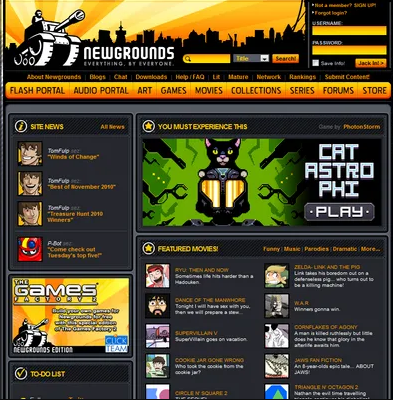
Newgrounds is an online gaming and social website for adults that allows users to create, play, and share games with others around the world. While this may sound like harmless fun, it’s important to note that some of these games contain mature themes or adult content that may not be suitable for younger players.
Parents should always check out game reviews before allowing their children access to any new game on Newgrounds in order to protect them from inappropriate adult content or messages from strangers online.
5. Mastodon
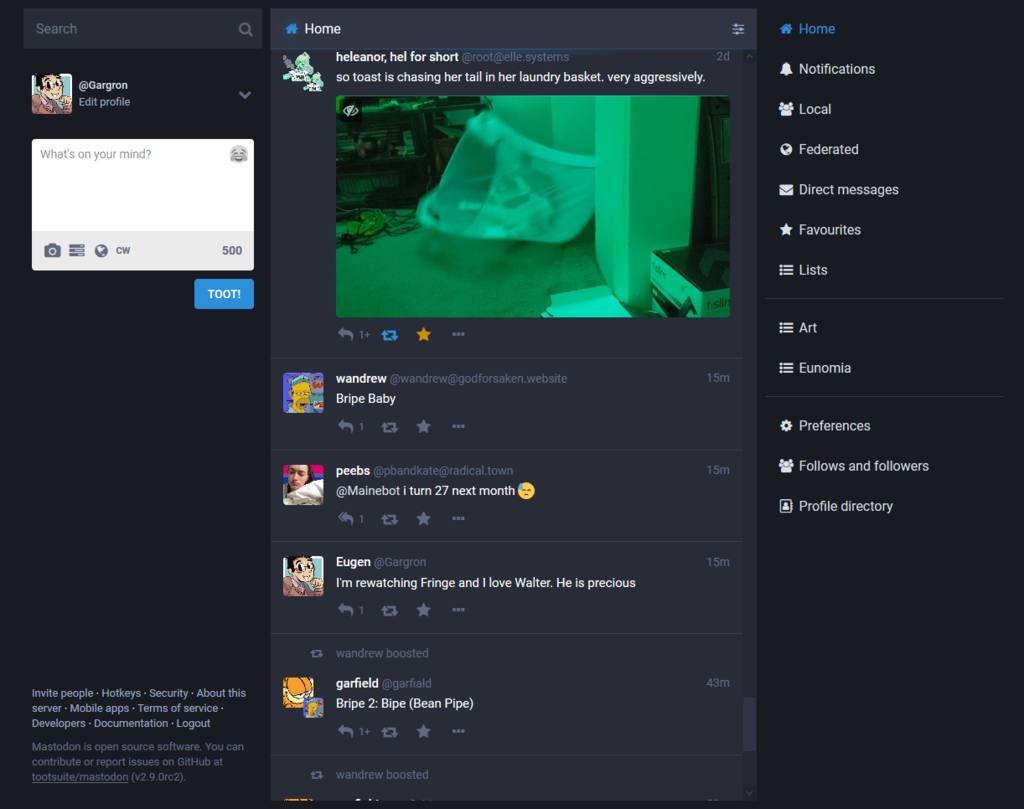
Mastodon is an open-source microblogging platform that allows users to post short messages up to 500 characters long (similar to Twitter).
Although this blogging site does have some filtering tools in place, more so than many other adult social sites, in fact, it doesn’t have any age restrictions so young children may be exposed to explicit material if they use Mastodon without parental supervision.
5 Adult Social Media Apps Parents Should Be Aware Of

fizkes/Shutterstock.com
Unfortunately, an alarming number of adult social media apps come with serious risks, like bullying, cyber crimes, and threats to safety. Among these adult social media apps are:
- Snapchat
- TikTok
- Badoo
Each of them may be attractive to kids but should be handled with caution by parents.
1. Snapchat

Snapchat has become one of the most popular social media platforms since its launch, but parents should be aware of it and the risks that it may present to their children.
Snapchat provides users with a great way to connect with friends, classmates, and family through messages, stories, and photographs; however, due to the quick transmission of data, the potential for the content being shared beyond intended audiences increases.
Furthermore, because users can control who sees content posted on Snapchat by specifically choosing people as ‘viewers’ or ‘friends’, much of what they post is practically invisible to parents.
2. TikTok
TikTok is a rapidly growing, multimedia social networking adult app that has become incredibly popular among teenagers and young adults.
Despite its large user base and fun videos, it can be dangerous for children. Automated algorithms paired with unlimited access to strangers online make the environment more prone to cyberbullying and negative behavior. Without proper guidance from parents, kids could easily engage in negative comments and unhealthy interactions. Furthermore, many of the videos can expose them to explicit or age-inappropriate content.
3. Facebook
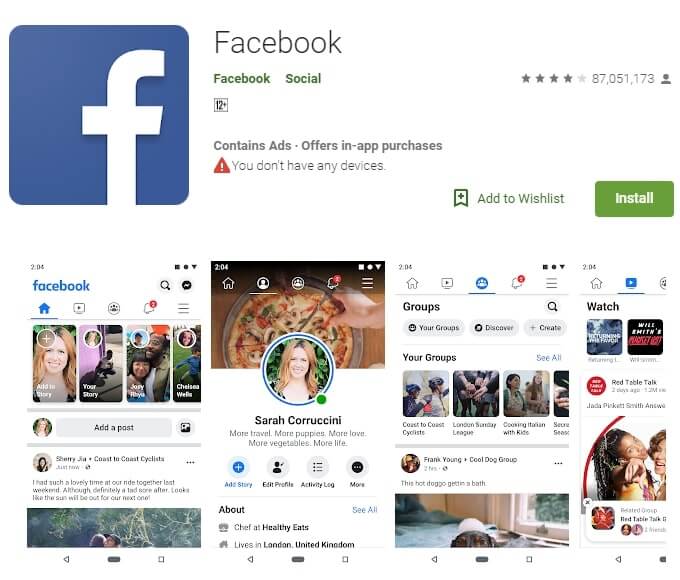
Facebook, one of the most popular adult-only social media apps, is no doubt a fun and entertaining platform for many people. Unfortunately, this app can also be potentially dangerous for children who use it.
Parents need to know the risks their children are taking when using this adult social network app. There are numerous issues they should consider such as cyberbullying, online predators, unmoderated comments, and inappropriate content. It’s important that parents understand how easy it is for people in control of their child’s account to share information about them with strangers or unwanted organizations.
Ultimately, it’s up to parents to teach their kids about the dangers of sharing private information on the internet and why safety measures should be taken when it comes to checking posts related to inappropriate content or interacting with others on social media apps like Facebook.
4. Twitter
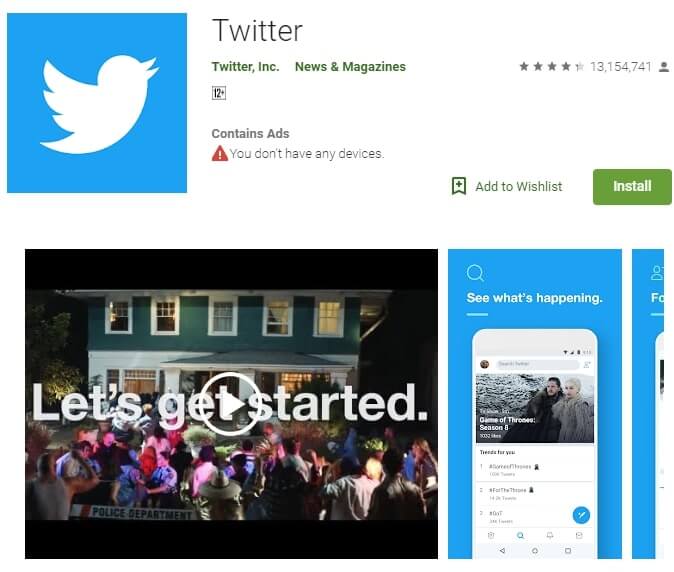
Twitter is another important social media app for adults only that parents should be aware of. It is a platform where users share their thoughts and feelings, as well as news headlines, which can contain explicit content.
Not only that but it can be used to organize live events and even show support for political causes. It is important that parents stay informed of the activities their children are engaging in on Twitter and make sure they are using the app safely.
There are a number of steps that parents can take to protect their children on Twitter such as monitoring activity, setting boundaries and limits, and keeping track of who they talk to.
5. Badoo
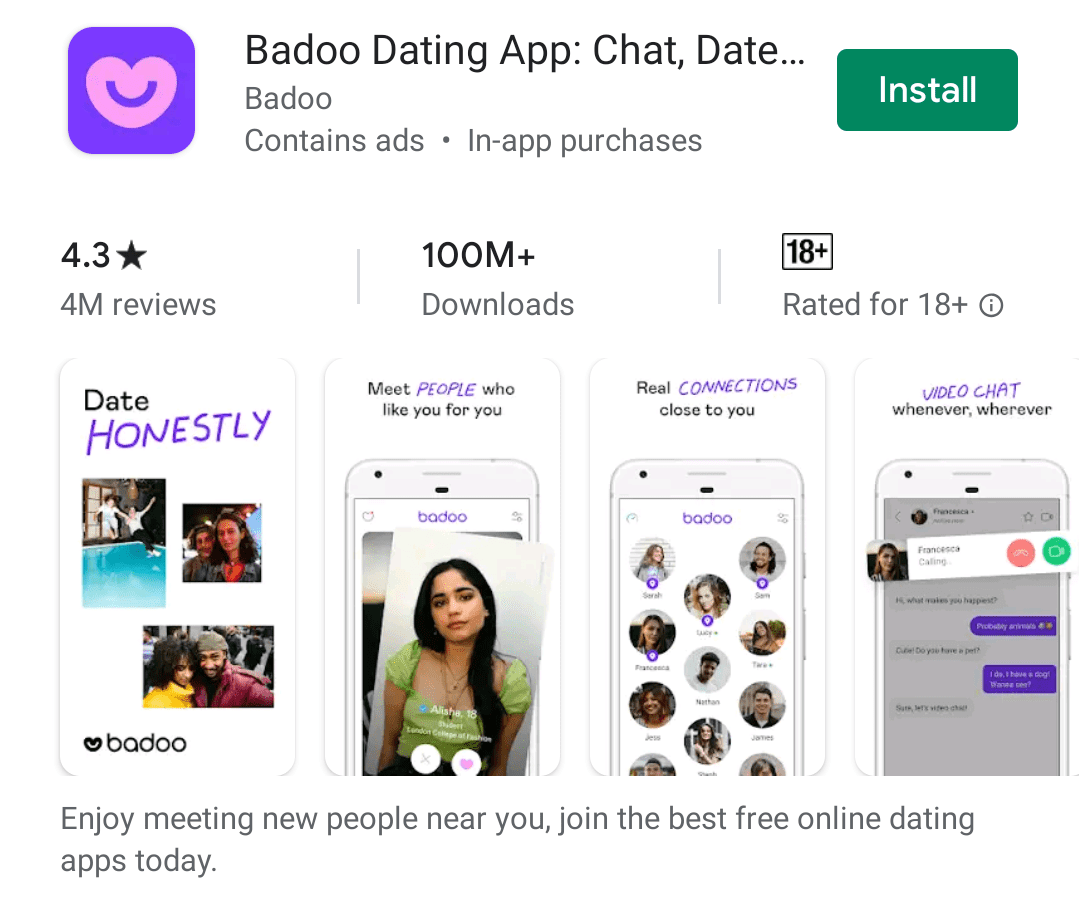
Badoo is an increasingly popular social media app that many parents should be aware of. With over 370 million users, this mobile phone-based platform allows people to meet up and chat with others in their local area.
Due to its easy accessibility and the potential for connecting with strangers, there are certain risks associated with Badoo. From fake accounts and inappropriate content to cyberbullying and sexual predators, it’s important that parents monitor their children’s use of this app and ensure they’re not engaging in unsafe practices when using it.
One more social platform that can be dangerous for your kid is Omegle. Keep reading about it here.
How Does Adult Social Media Affect Kids? Ways to Keep Your Child Safe

Ground Picture/Shutterstock.com
It’s important to recognize how adult social media can affect our children. We must protect them from the potential harms that arise and keep them safe by understanding the risks.
Here are some tips on how to safeguard young minds and bodies when engaging in adult social media.
1. Limit Access to Adult Social Media
One way to ensure that your child is not exposed to age-inappropriate content or potential predators is to limit their access to adult social media platforms.
For example, you may consider signing them up for youth-specific apps like DisneyMix or Yubo rather than adult social media sites and apps, like TikTok. Such restrictions will help you provide digital protection for your child, allowing them to enjoy the benefits of social media without compromising their safety.
2. Use Parental Controls to Monitor and Control the Use of Social Media Apps
Most social media apps have some form of parental controls built in. For example, on Facebook, you can set up different privacy settings for each individual user. This means that your child can only see content that you approve of. You can also use parental controls to limit the amount of time your child spends on social media each day.
Social media and social networking provide powerful opportunities to connect with other people, but the potential dangers of social networks created for adults can cause serious harm to our children.
Kids360 is the perfect way for parents to ensure that their children do not find themselves in inappropriate social networking situations. The app helps parents monitor social networks online and provides real-time alerts when they need it most.
Download Kids360—the first parental control that kids enjoy—today for peace of mind knowing your kids are being monitored when using social media sites! Keep them away from adult social networks and adult social media platforms.
3. Have Conversations With Your Child About Responsible Use
One of the best ways to keep your child safe is to have regular conversations with them about the responsible use of social media. Talk about things like cyberbullying and online predators. Let them know that they can come to you with any questions or concerns they have about their online activity.
4. Set Screen Time Limits
It’s important to set limits on screen time in general, not just for social media usage. Too much screen time can lead to problems like sleep deprivation and anxiety. It’s important to strike a balance between allowing your child access to technology and making sure they’re getting enough physical activity and face-to-face interaction with others.
5. Disable Location Sharing
Most social media apps allow users to share their location with others. This is a feature that should be disabled for children, as it can make them vulnerable to predators and bullies.
Restrict access to location sharing by visiting the settings on your child’s phone. Again, this isn’t beneficial just for when they are using adult social networks, but to keep them safe from other online threats as well.
6. Restrict Device Usage to Shared Spaces in the Home
Although you might find that the easiest way to limit your child’s access to social media apps for adults only is to just ban them from using them entirely, the reality is that a solution like that isn’t always practical.
Instead, restrict device usage to shared spaces in the home, like the living room or kitchen. This way you can monitor what your child is doing online and make sure they’re not spending too much time on social media overall.
Related: 17 Negative & Positive Effects of Technology on Children and How to Overcome Them.
There are countless social sites for adults only, and while it might be easy to just tell your child they aren’t allowed to use them, it’s important to remember this fact—you were a teenager once, too! And kids like to test the limits.
Inevitably, you’re going to need to have a conversation with your child about using social networks for adults only. Keep an open dialogue and make sure your child understands the benefits and risks inherent to all of these social sites for adults.
FAQs
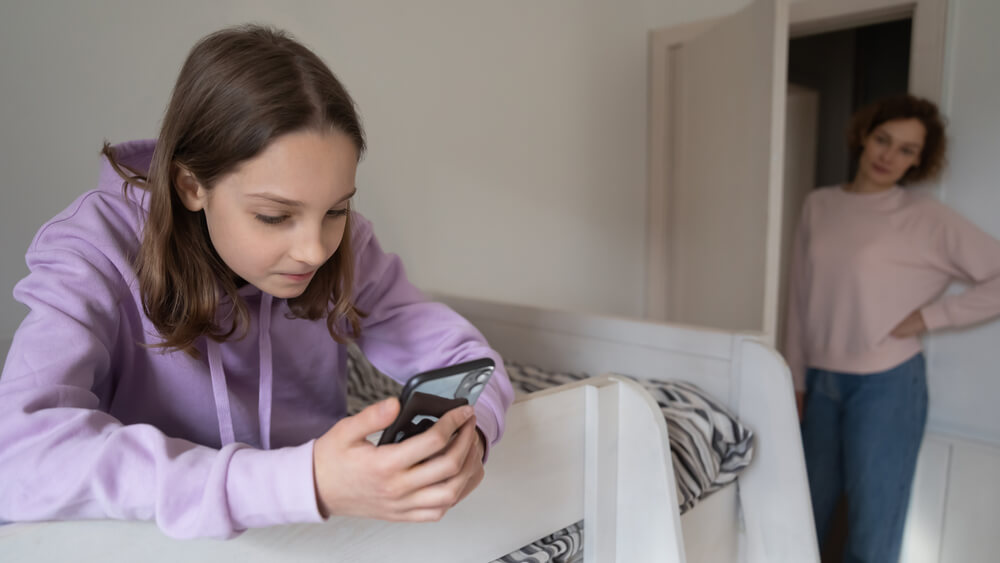
fizkes/Shutterstock.com
What are the dangers of social media for kids?
The risks posed to kids who use social media widely range from security threats such as hackers gaining access to private information to the overwhelming pressure teens face from their peers via comparison and bullying. Not only can this lead to mental health issues and depression, it can also leave children vulnerable to exploitation by adults with bad intentions.
Should parents limit the use of social media?
While social media can be a useful tool for staying connected with peers and family, too much time spent on it can hurt academic performance and even put kids at risk for cyberbullying. Therefore, parents should set age-appropriate limits on the amount of time their children spend on social media, teach them responsible online behavior, and keep communication open to address any potential issues as they arise.
What parents should know about social media?
Encouraging open dialogue about safety tips, privacy settings, cyber smarts, and time management is a great way to provide support and guidance to kids using social media platforms. Teaching kids about cyberbullying, digital responsibility, good online decision-making skills, internet etiquette, security basics, and more will help them be more mindful of how they choose to interact on social media.
What is the most popular social media for adults?
Facebook is currently the most popular social media platform for adults in the US, followed by Instagram. Younger adults tend to be more frequent users of TikTok.
What is the hottest social media app?
Some of the hottest social media apps right now include Facebook, YouTube, and Instagram, while Lemon8, TikTok, and Tumblr are currently experiencing the biggest growth since 2023.
Which social media platform allows NSFW?
The platform formerly known as Twitter, X, is one of the only social media platforms (in the mainstream) that allows NSFW (“not safe for work” — indicating adult content) as long as this content is clearly labeled.
What is like Instagram but for adults?
Vero is an adult social media platform that operates similarly to Instagram but allows NSFW. Whereas Instagram has a no-nudity policy, this is permitted on Vero. Lips is another new adult social media platform that not only allows but welcomes sexual expression.
The picture on the front page: Prostock-studio/Shutterstock.com
Проверьте электронный ящик














